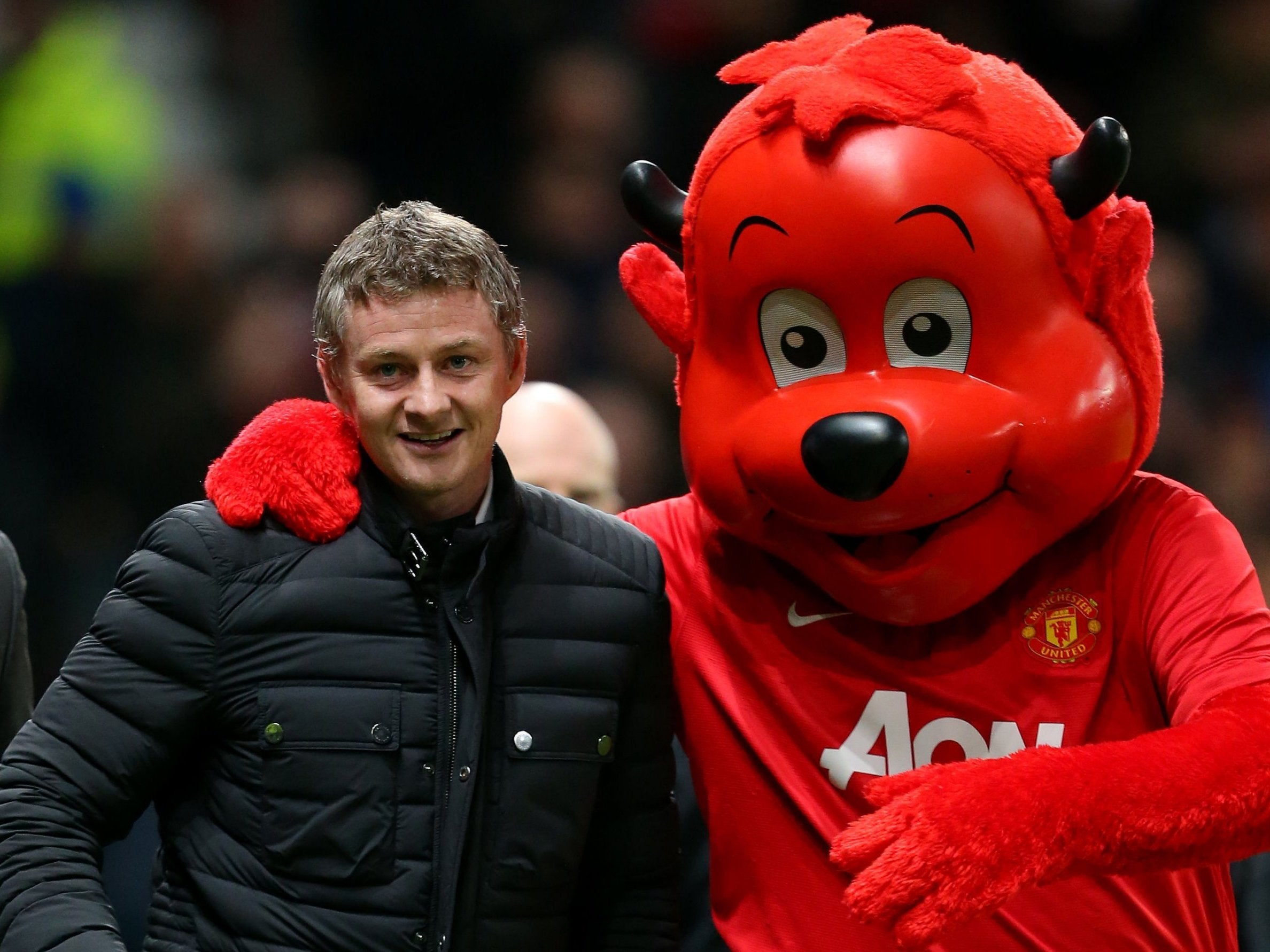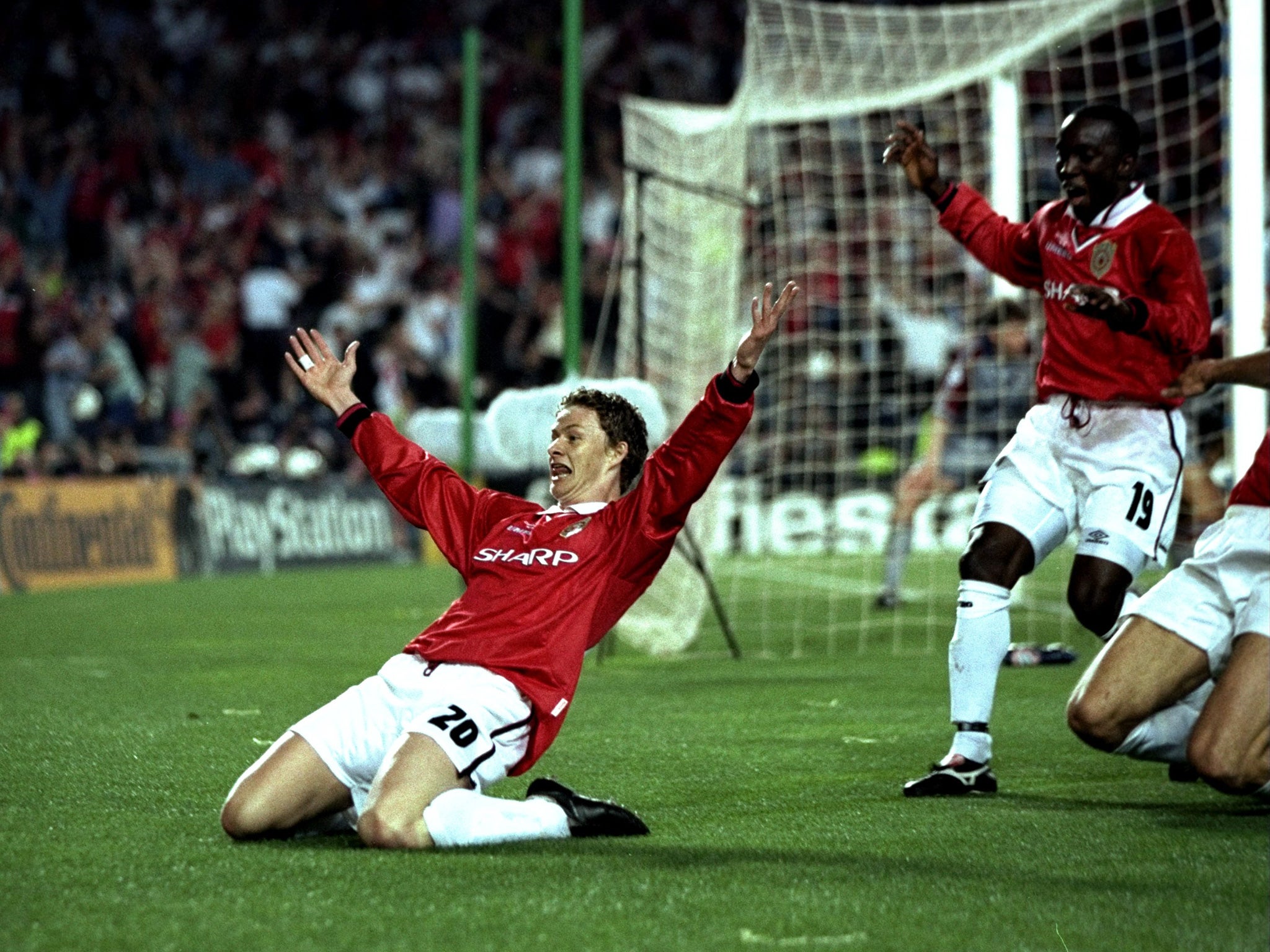What will Ole Gunnar Solskjaer bring to Manchester United? A profound love for the club and desire to unite the squad around Paul Pogba
Profile: A true United fan returns ‘home’ after learning his craft under Sir Alex Ferguson, but rejuvenating a squad regularly thrown under the bus by Jose Mourinho will be his biggest task yet

Your support helps us to tell the story
From reproductive rights to climate change to Big Tech, The Independent is on the ground when the story is developing. Whether it's investigating the financials of Elon Musk's pro-Trump PAC or producing our latest documentary, 'The A Word', which shines a light on the American women fighting for reproductive rights, we know how important it is to parse out the facts from the messaging.
At such a critical moment in US history, we need reporters on the ground. Your donation allows us to keep sending journalists to speak to both sides of the story.
The Independent is trusted by Americans across the entire political spectrum. And unlike many other quality news outlets, we choose not to lock Americans out of our reporting and analysis with paywalls. We believe quality journalism should be available to everyone, paid for by those who can afford it.
Your support makes all the difference.Manchester United have appointed an interim manager with a profound love for the club.
With the massive influx for foreign players to the English game, some fans are understandably worried that their teams are made up of an international cast of journeymen with no attachment to the club and no appreciation of its heritage. But some foreign players end up falling in love, and buy into the club and the local community as much, if not more, than their British-born teammates. Ole Gunnar Solskjaer was emphatically one of these players.
It's impossible to overstate just how deeply Solskjaer's affection for Manchester United runs. He famously still refers to Sir Alex Ferguson as “the boss”. He has referred to Old Trafford as “home”. As a manager in Norway he has repeatedly compared his players to United players past and present, with one of the recent ones being powerful young forward Erling Braut Haaland (son of Alf-Inge), who he described as being “like Romelu Lukaku”. His reverence for Sir Alex is total. “He has meant almost everything to me as a footballer. I won something for the first time in my life under him. I learned how to be a good winner, and a bad loser. I learned how to be a coach, how to be a manager. Everything, really”, he said earlier this year.
And he's not just paying lip service, the influence of Ferguson on Solskjaer the manager is obvious. It's there in the way he favours delegating tasks and having a strong assistant manager who will often take charge of training session. It's there in the way he puts huge emphasis on cultivating the right atmosphere and the right mentality at his club. And it's there in the way he is prepared to put his faith in youth.
During periods of his playing career Solskjaer kept a diary where he would assess his own efforts in training, sometimes harshly. The idea was to make himself more aware of any mistakes he might be making. “I was a boring man but a reflective man”, he noted many years later. The oft-repeated notion that he would spend his time as a substitute on the United bench analysing the game has perhaps been somewhat over-egged, but there is an element of truth there as well. “I probably didn't analyse the whole game, I didn't do that. I had to think about myself, when I was going to come on, where I could do the most damage... Thierry Henry could do whatever he wanted as far as I was concerned, Jaap Stam would deal with that. But I would pay attention to what the centre-halves and the full-backs were doing”, he explained to Norwegian magazine Josimar back in 2012.
As an experienced player who already had a habit of thinking analytically about the game, it was no surprise that he went into management shortly after retiring. And it was no surprise when he turned out to be good at it, first with the Manchester United reserves and then with Molde. Backed financially by Kjell Inge Rokke, one of the wealthiest men in Norway, Molde assembled a talented young squad for Solskjaer to work with. He moulded Molde into a sleek attacking outfit that promptly won two consecutive league titles, the first league titles in the club's history. Then came Cardiff.
Having spent his entire professional life, as a player and a coach, with strong teams who had better players than the teams they came up against most weekends, Solskjaer found himself in a very different situation at Cardiff – and failed woefully to adapt his methods accordingly. Malky Mackay's Cardiff were robust, attritional, short on elite talent but uncomfortable to play against. In the middle of the season, when time on the training pitch is a precious and finite commodity, Solskjaer attempted to transform the team and make them play more open and expansive football. It was something the squad seemed ill-suited to, and Solskjaer's miscalculation was compounded by his naivety in the transfer market. As the poor results kept coming Solskjaer attempted to revert to a more cautious approach, a different way of playing to anything he'd experienced before, but the team looked lost and confused. It was an unmitigated disaster.
“I learned a lot in Cardiff and I wouldn't want to be without that time. I've reflected a lot on what happened and I realise I maybe wasn't as good and mature a manager at the time as I thought I was”, Solskjaer admitted to Dagbladet last year. He moved back to Kristiansund on the Norwegian West Coast, wanting to take a break and spend some time with his family among the mountains and the fjords. Soon enough he was back in charge of Molde, leading them out of the group stage of the 2015 Europa League by beating Fenerbahce in Istanbul and Celtic home and away. The next two seasons Molde would finish runners-up behind a dominant Rosenborg.

As a manager Solskjaer wants his teams to play attacking football. He likes players who are technically capable, who are confident in their abilities and who can make their own decisions on the pitch. With that in mind, it should be no surprise that he has said publicly that United should look to build the team around Paul Pogba. During his ill-fated spell at Cardiff he rotated his squad almost constantly, something he has later acknowledged was a mistake. Still, in his second spell at Molde he has also displayed a fondness for changing both is line-up and the team's formation regularly, opening him up to accusations of tinkering and over-thinking.
He has a positive approach to man management and always looks to build his players' confidence, which should be a welcome relief to a squad that has had to grow accustomed to being thrown under metaphorical moving vehicles and being regularly berated for any number of reasons. However, it is reasonable to question whether Solskjaer has the experience and the stature to control what has to be considered a challenging dressing room.
In Norway he has a kind of aura about him, when he enters a room people will sit up and take note because he is the most famous footballer in the country's history. Even as a club legend at United his mere presence may not command the same type of instant respect. Managing at the top level these days is so much about achieving buy-in from the players, which is something that has always come easy for Solskjaer in Norway. At United this will be more of a challenge.

There is no doubt that this is the one job Ole Gunnar Solskjaer wants above all others on the planet. Manchester United and Sir Alex Ferguson provided the framework of his whole approach to football, and he still speaks of his time at the club with a wide-eyed sense of wonder. He can sound at times more like a young fan than a 45-year-old man who should at this point be a hard-nosed manager in his own right. His positivism should be a breath of fresh air, even if his management credentials are more uncertain.
Even with all his years playing for United, nothing he has experienced so far will have prepared Ole Gunnar Solskjaer for the swirling inferno of being in charge of one of the biggest clubs in the world. But perhaps his positive approach and his irrepressible affection for all things Manchester United is just what the club needs, after the toxic and protracted endgame of the Mourinho-era. Maybe, just maybe.
Join our commenting forum
Join thought-provoking conversations, follow other Independent readers and see their replies
Comments